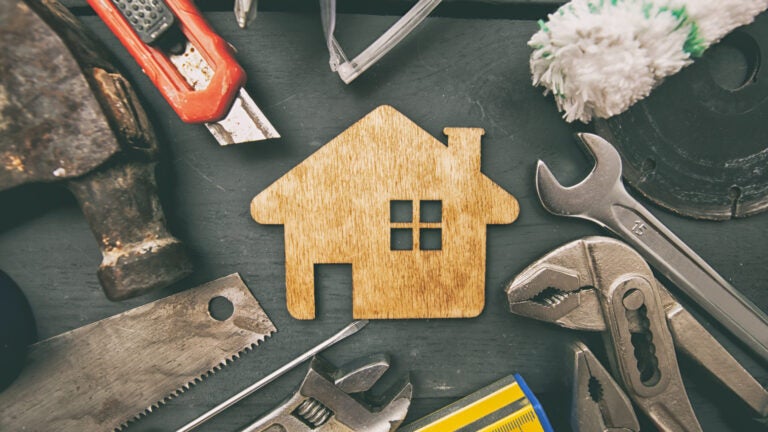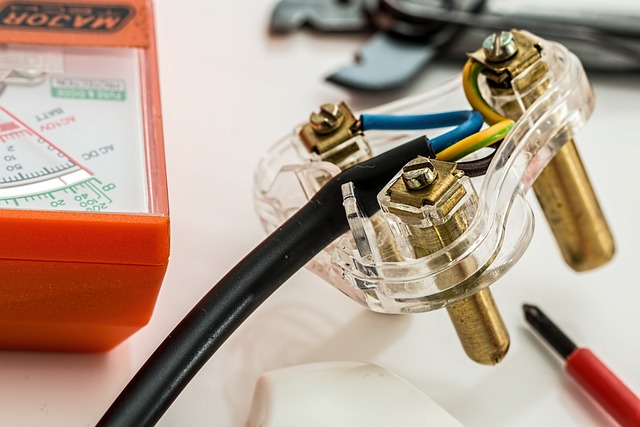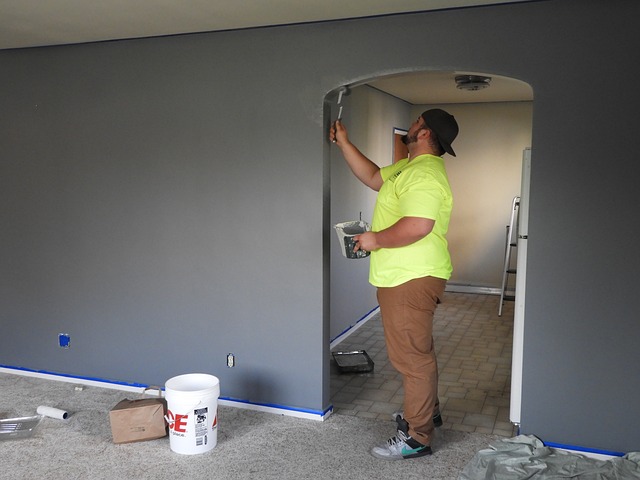
Welcome to 'Home Safety 101: 5 Fundamental Measures Every Homeowner Should Implement.'
In this article, we will explore the essential steps every homeowner should take to ensure the safety and security of their home.
From installing alarm systems and fire safety measures to implementing carbon monoxide detectors and enhancing door security, we will provide you with concise and authoritative information on how to protect your home and loved ones.
Stay informed and empowered with these fundamental home safety measures.
Alarm System Installation
One crucial step in ensuring home safety is the professional installation of an alarm system. With the advancement of wireless technology and home automation, alarm systems have become more sophisticated and efficient in protecting properties and the people within them.
Wireless technology allows for easy installation without the need for drilling holes or running wires throughout the house. This not only reduces the installation time but also minimizes any damage to the property.
Additionally, alarm systems can now be integrated with home automation systems, providing homeowners with the convenience of controlling their security system remotely. They can arm or disarm the alarm, receive real-time notifications, and even monitor their property through connected devices such as smartphones or tablets.

Fire Safety Measures
The implementation of proper fire safety measures is crucial for every homeowner's protection and peace of mind. Here are four essential fire safety measures that every homeowner should implement:
- Fire Extinguisher Placement: It is important to have fire extinguishers strategically placed throughout the house, especially in high-risk areas such as the kitchen, garage, and near fireplaces. Regularly check the extinguishers to ensure they are in good working condition.
- Evacuation Plan: Create a detailed evacuation plan and share it with all members of the household. Ensure that everyone knows the primary and secondary escape routes, designated meeting points, and how to call emergency services. Practice the plan regularly to ensure a quick and efficient response in case of a fire emergency.
- Smoke Alarms: Install smoke alarms on every level of the house, including inside bedrooms and outside sleeping areas. Test the alarms monthly and replace batteries at least once a year to ensure they are functioning properly.
- Fire Safety Education: Educate yourself and your family members about fire safety. Teach everyone how to safely handle fire hazards, such as candles and cooking appliances. Additionally, educate children about the dangers of playing with fire and the importance of not tampering with smoke alarms or fire extinguishers.
Carbon Monoxide Detectors
Carbon monoxide detectors are an essential safety measure that every homeowner should have in their house. Without a detector, it is impossible to detect the presence of CO, which poses a serious risk of carbon monoxide poisoning. Carbon monoxide (CO) is a colorless, odorless gas that can be deadly if inhaled in high concentrations. It is produced by the incomplete combustion of fossil fuels, such as gas, oil, and coal. In fact, according to home safety regulations, carbon monoxide detectors are required in many jurisdictions. These devices are designed to sound an alarm when they detect high levels of CO, allowing homeowners to take immediate action and evacuate if necessary.
Installing carbon monoxide detectors is a crucial step in ensuring the safety and well-being of everyone in the home.
Door Security
A crucial aspect of home safety is ensuring strong and effective door security. By implementing proper measures, homeowners can enhance their protection against intruders and potential threats.
Here are some essential ways to reinforce your doors and enhance security:
- Door Reinforcement: Strengthen your doors by installing a door reinforcement kit that includes a reinforced strike plate, longer screws, and a door jamb reinforcement plate. This helps to prevent forced entry and makes it harder for intruders to break in.
- Smart Locks: Upgrade your traditional locks with smart locks that offer advanced security features. Smart locks provide convenience, allowing you to lock and unlock your doors remotely using a smartphone app. They also offer additional security features like tamper alerts and access logs.
- Security Bars: Install security bars on sliding doors and windows to prevent them from being forced open. These bars provide an extra layer of protection against break-ins and deter potential intruders.
- Peephole or Door Viewer: Install a peephole or door viewer to see who is outside without opening the door. This allows you to verify the identity of visitors before granting them access.
Anti-Slip Measures
Implementing anti-slip measures is essential for ensuring the safety and stability of your home. Slip-resistant flooring and staircase safety are crucial elements in creating a secure living environment.
Slip-resistant flooring is designed to provide traction and prevent accidents caused by slippery surfaces. It is especially important in areas prone to moisture, such as bathrooms, kitchens, and entryways. By choosing slip-resistant flooring materials, you can significantly reduce the risk of falls and injuries.

Additionally, staircase safety is paramount, as stairs are a common site for accidents. Installing handrails and ensuring proper lighting can greatly enhance safety. Regularly inspecting and maintaining stairs, including repairing any loose or damaged steps, is also essential.
Frequently Asked Questions
How Often Should I Test My Alarm System After Installation?
It is recommended to test your alarm system after installation and regularly thereafter to ensure it is functioning properly. This is an important step in maintaining home security and peace of mind.
Are There Any Specific Fire Safety Measures That Should Be Taken in the Kitchen?
Fire safety in the kitchen is crucial due to common hazards like grease fires and electrical malfunctions. Proper placement of fire extinguishers near exits and cooking areas is essential to facilitate quick response and minimize damage.
Can Carbon Monoxide Detectors Detect Other Harmful Gases Besides Carbon Monoxide?
Carbon monoxide detectors are designed specifically to detect carbon monoxide, a harmful gas that can cause carbon monoxide poisoning. They are not capable of detecting other harmful gases, as their sensors are calibrated to respond to carbon monoxide only.
What Are Some Effective Ways to Reinforce Doors for Better Security?
Door reinforcement techniques are essential for better home security. Installing deadbolt locks, using door jammers or security bars, and reinforcing the door frame are effective measures to deter burglars and enhance the safety of your home.
Are There Any Specific Anti-Slip Measures That Should Be Taken in the Bathroom?
Preventing slips and falls in the bathroom is crucial for home safety. Homeowners should consider using anti-slip bathroom flooring options, such as non-slip mats, textured tiles, or applying a non-slip coating to existing floors.
 Family Craft ProjectsHome ImprovementCooking and BakingReuse and RecycleDIY GiftsEco-Friendly ProjectsDIY Home SolutionsSeasonal ActivitiesFun and GamesLearn TogetherPrivacy PolicyTerms And Conditions
Family Craft ProjectsHome ImprovementCooking and BakingReuse and RecycleDIY GiftsEco-Friendly ProjectsDIY Home SolutionsSeasonal ActivitiesFun and GamesLearn TogetherPrivacy PolicyTerms And Conditions
